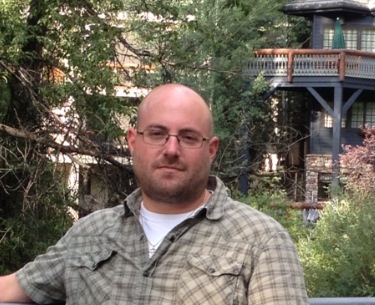
Bryan Kessler
Bryan Kessler has made it his life’s mission to teach and memorialize the Holocaust.
Kessler, a grandchild of Holocaust survivors, teaches high school Jewish history at the Adelson Educational Campus in Las Vegas and has a background in museum curation. He also serves as the educational liaison for the Nevada Governor's Advisory Council on Holocaust Education and the Sperling Kronberg Mack Holocaust Resource Center, is a member of the Clark County School Board Task Force on Holocaust Education, and has designed and implemented curriculum for the Clark County School District on the Holocaust and Intolerance.
Next year, Kessler will begin work on his PhD. His dissertation will address how the Holocaust can be taught and remembered once its survivors have passed on.
Kessler was one of the first teachers to begin using IWitness, USC Shoah Foundation’s interactive educational website, after its launch in 2012. IWitness contains 1,356 testimonies of survivors and witnesses of the Holocaust from USC Shoah Foundation’s Visual History Archive. Students can search and watch testimonies, complete activities, and create their own multimedia projects using a built-in video editor.
He said IWitness fits in with his goal to make sure the Holocaust continues to be taught even after the survivor community is gone.
“Especially being in a Jewish school, I wanted our students to realize that they are keepers of the keys of these testimonies,” Kessler said. “Students don’t just need to know the stories; they need to know what to do with the stories going forward.”
In his Jewish history and Holocaust classes, Kessler assigns his students to watch testimony in IWitness so they can discover the human stories behind the historical events and facts of the Holocaust. Students come up with the questions they would want to ask survivors and then search through the testimonies to find the answers. Kessler also assigns each student his or her own survivor, and the student watches their survivor’s testimony to find out about their life before, during and after the war.
“When you’re talking about a large event, and then [they] hear it from an actual person who went through the event, I feel that event just has more gravity to it,” Kessler said. “It builds empathy and that’s the key to the kingdom.”
Many of his students have been profoundly impacted by the experience of watching testimony, Kessler said. For her final project, one student recreated a song that a survivor describes her sister singing to her to calm her during the war, based on notes the survivor saved from her sister’s diary.
Another student built houses in Ghana this summer and is planning a career in social justice – directly influenced by the Holocaust survivors’ stories. “That’s as rewarding as you can get,” Kessler said.